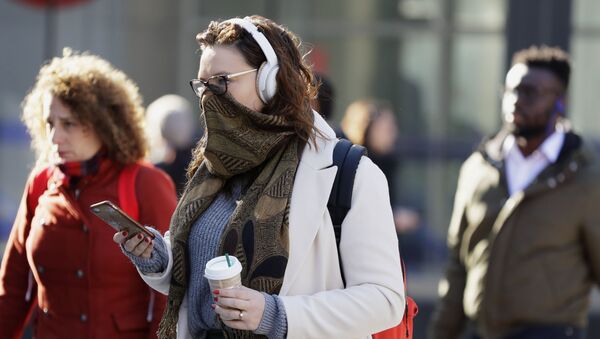Sputnik: Just how important is positive touch and human contact for our mental health?
Michaela Pascoe: Yeah, it's really important. We've evolved collectively, really. So, I guess the way that our cultures have formed and societies have formed to begin with other people. Touch is really important in our ability to form relationships with people, both romantic relationships and relationships even within our families. We know that touch between babies and the parents is really important even in the very earliest moments of life. It is paramount in terms of our ability to form connections with people and maintain good mental health because of course our connections with people is also a very important part of our mental health and wellbeing.
Sputnik: How can people enjoy the benefits of positive touch whilst living in a society that’s currently on lockdown?
Michaela Pascoe: It's a bit tricky. Obviously, we have some systemic barriers that are necessary and important but do make it really difficult to engage in positive physical touch at the moment. If you live with people and you share a house with somebody then you can touch one another and you can maintain or see positive touching that way. Another thing would be if you don't live with people but happen to have an animal, you can pet your animal and petting animals has been shown to have some really beneficial effects on mental health as well. If you don't live with anybody and you don't happen to have any pets, you should also engage in subtypes like massage and that has also been shown to decrease symptoms of anxiety and depression and to improve mental health and decrease stress. So, there are different things we can do. We can also do things that are not necessarily touch-related because they make us feel good. So, some self-nurturing activities, like maybe running a hot bath or going out hot for a walk and getting some fresh air and some sunshine, making ourselves a nice meal. So there's a whole lot of different ways that we can engage in self-care, I guess even in the absence or reduced level of physical contact that we used to.
Sputnik: What can government’s do policy-wise to ensure that we still remain connected with family, friends and individuals amid lockdown?
Michaela Pascoe: That's really a really difficult question and obviously governments everywhere are taking different approaches and doing different things and because it is a very dynamic time and things are moving very quickly, policies and responses are also moving really quickly but I guess we are finding that technology has been a really good way to help keep us connected and just being aware of maintaining and talking about our mental health and our wellbeing and having that as something that's in the forefront of our mind. So I guess we have major concerns in terms of people's physical well beings with not wanting to spread COVID-19 and trying to make sure that we have the resources available to manage that but we can expect that we're going to have a second wave of mental ill-health that follows this because it is a trauma and a traumatic event often does lead to shorter or long term decreases in mental wellbeing. So I think that it's really important that governments are aware of that and that we have some sort of response in place so that when that does occur and we're likely to have already seen it starting to occur, that we can respond to that in an appropriate way and we have mental health promotion strategies and mental illness treatment, resources and facilities and opportunities for people.



